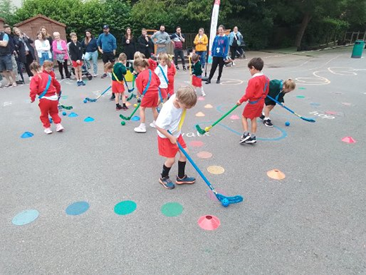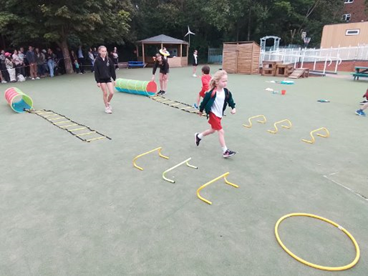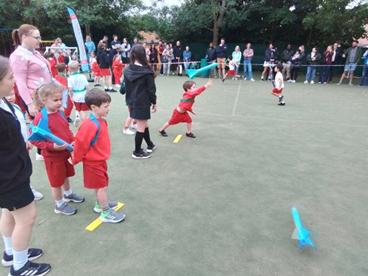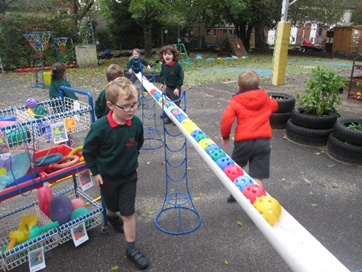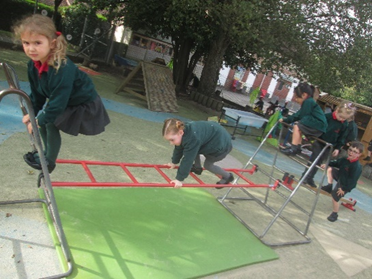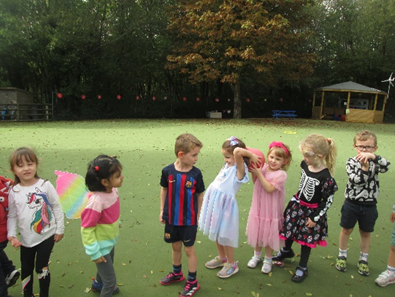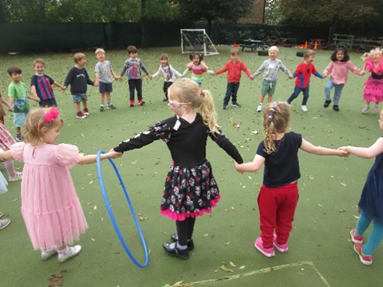Physical Education
Becoming Athletes
“Exercise is the key not only to physical health but to peace of mind”
Nelson Mandela.
At Holmesdale Community Infant School, our curriculum is inclusive and allows all pupils to access a range of physical activities which enables our pupils to be physically active. We ensure all pupils are willing to practice and take part in different activities and situations, alone, in small groups and in teams, applying skills to achieve high levels of performance. Physical Education at Holmesdale will develop pupil’s physical literacy and allows them to learn about themselves, the importance of healthy lifestyles, self-expression, decision making and social skill. We encourage pupils to be active throughout a P.E lesson and employ creativity and imagination in their techniques, tactics and chorography. Our pupils will know how to collaborate and cooperate as part of an effective team, understanding fairness and equality of play to embed life-long values. Our intent is to foster an enjoyment of physical education through a variety of experiences so they can become thinkers, creators, and future makers.
Implementation
All children at Holmesdale Community Infant School can participate in a range of physical activities which are carefully planned. Within lessons, there is an emphasis on pupils being able to achieve their personal best, building resilience. Pupils are taught how to play fairly, creating a sense of teamwork, friendship and respect and depth of skills through a series of lessons.
PE in the Foundation Stage:
In the Early Years Foundation Stage (EYFS), children develop their gross and fine motor skills through a wide range of carefully planned activities and experiences. Gross motor skills involve the coordination and control of large muscles, and children strengthen these by engaging in activities like running, jumping, climbing, and balancing. Children have access to our well-equipped outdoor area throughout the day where they children improve their strength, coordination, and spatial awareness through play.
Fine motor skills focus on the use of small muscles, especially in the hands and fingers. Fine motor skills involve the use of small muscles, particularly in the hands and fingers. These skills are nurtured through tasks such as mark-making, threading, cutting, and handling small objects. Within the continuous provision of both the indoor and outdoor environments, teachers thoughtfully plan activities such as playdough modelling, building with blocks, and early writing practice. These experiences help refine children's dexterity and hand-eye coordination, laying a strong foundation for future writing, creative and physical tasks.
Children in Reception participate in structured PE sessions each week, focusing on specific skills in dance, gymnastics, and games. They are then given opportunities to practise and refine these skills through continuous provision activities.
.Teaching of PE in KS1:
- The PE lessons are planned so that the children have access to a wide range of sports and have the chance to learn and develop new skills. Each class has access to 2 hours of high quality PE lessons each week.
- The children develop fundamental movement skills, becoming increasingly competent and confident in many areas of PE and access a broad range of opportunities to extend their agility, balance and coordination both individually and cooperatively.
- Our PE curriculum embeds skill progression into each lesson and uses progressive activities that are designed to inspire and engage the children, allowing them to explore and develop skills and embed knowledge.
- In gym, children will learn to make shapes and balances, travel on a variety of body parts, roll, jump and land safely. Children will use a variety of hand apparatus such as hoops, balls and ribbons and will practise their skills on the large apparatus.
- In games, the children will learn to move with control, develop spatial awareness and manipulate equipment, practising the skills of rolling, throwing, catching, collecting and aiming.
- Dance is an integral part of our PE curriculum that enables children to copy, repeat and create their own sequences and perform them to a variety of audiences. We ensure that children experience different styles of dance and music to develop their cultural awareness.
- We provide children with opportunities to participate in extracurricular activities that are inclusive, enjoyable and increase children’s physical activity and development.
- Annually, the children participate in inter school sporting events, wellbeing days and whole school sports day.
Impact
Through good physical education, whole school values and a whole child approach, our pupils are confident, resilient children who will strive for their personal best. Children are able to articulate their wants and needs. Children obtain the values and skills to celebrate and respect the success of others, as well as modestly celebrating their own successes.
